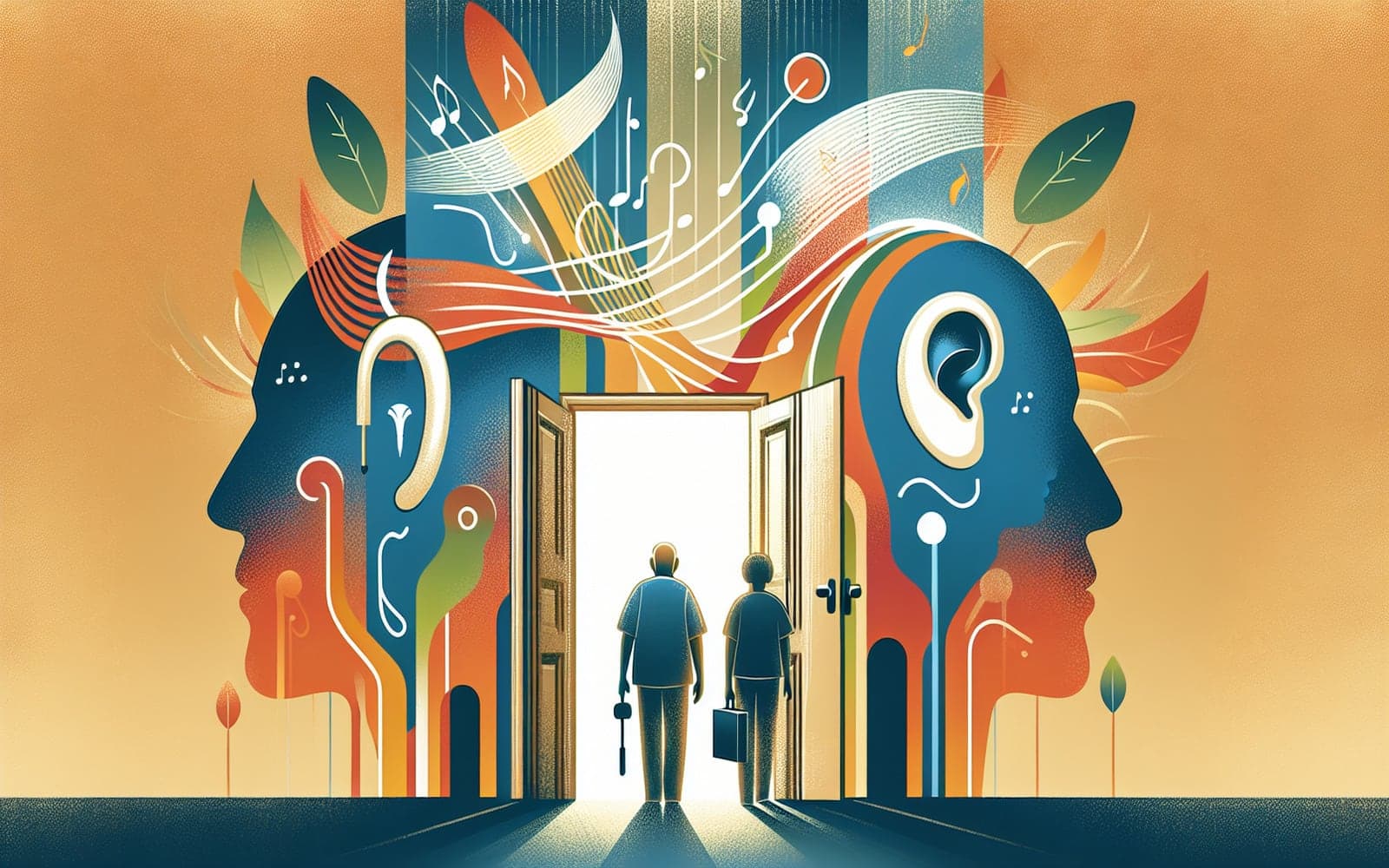Hearing Aids: Your Gateway to Better Sound
Published: Jun 07, 2024

Medically reviewed by Alan Lucks | MD, Alan Lucks MDPC Private Practice - New York on June 7th, 2024.
Hearing aids are small but powerful devices that can dramatically improve life for people with age-related hearing loss. These modern marvels have come a long way from the ear trumpets of old.
Contents
How Do Hearing Aids Work?
Hearing aids are essentially miniature sound systems. They have microphones to pick up sounds, amplifiers to make those sounds louder, and speakers (called receivers) to deliver the amplified sound to your ear. Modern hearing aids use digital technology to process sound, allowing for more precise adjustments and better sound quality. They can be programmed to amplify certain frequencies more than others, which is especially helpful for age-related hearing loss that often affects high frequencies more.
Types of Hearing Aids
There are several styles of hearing aids available. Behind-the-ear (BTE) aids sit behind your ear and connect to an earpiece in your ear canal. In-the-ear (ITE) aids fit entirely in your outer ear. Smaller versions include in-the-canal (ITC) and completely-in-canal (CIC) aids. Each type has its own benefits and drawbacks in terms of power, battery life, and visibility.

Advanced Features
Modern hearing aids offer features that go beyond simple amplification. Many can connect wirelessly to smartphones, allowing you to adjust settings or stream audio directly to your hearing aids. Some have directional microphones to help you focus on sounds in front of you, reducing background noise. Others offer tinnitus masking features or rechargeable batteries for added convenience.
Frequently Asked Questions
Typically 3-7 years with proper care.
Most are water-resistant, not fully waterproof.
They improve hearing but don't restore normal hearing.
Prices vary widely, from hundreds to thousands of dollars.
Key Takeaways
While adjusting to hearing aids takes time, the improvement in quality of life can be truly transformative.
Wondering if hearing aids might be right for you? Chat with Doctronic to learn more about your options and next steps.Related Articles
References
Sprinzl GM, Riechelmann H. Current trends in treating hearing loss in elderly people: a review of the technology and treatment options - a mini-review. Gerontology 2010; 56:351.
Stark P, Hickson L. Outcomes of hearing aid fitting for older people with hearing impairment and their significant others. Int J Audiol 2004; 43:390.
This article has been reviewed for accuracy by one of the licensed medical doctors working for Doctronic. Always discuss health information with your healthcare provider.

